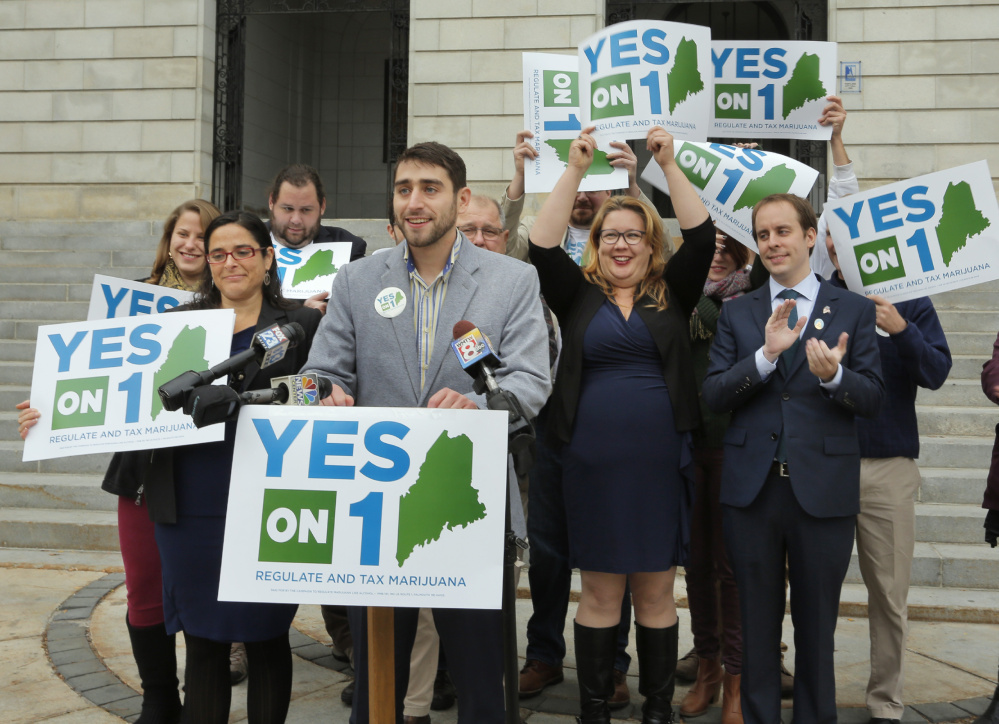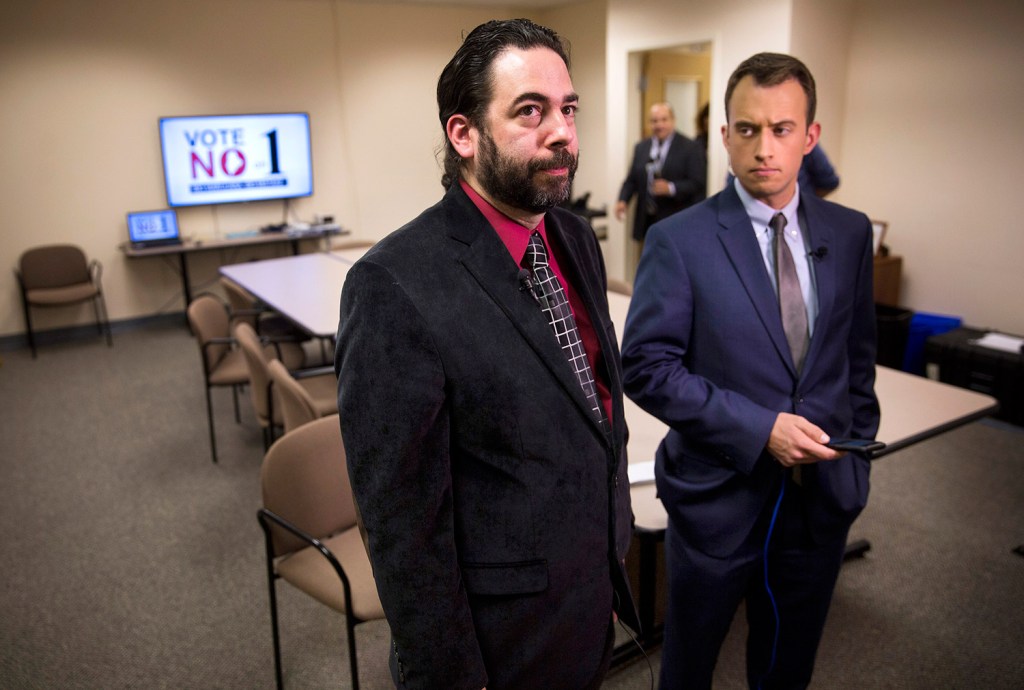Maine voters have narrowly approved legalizing recreational marijuana use in Maine, based on unofficial vote totals on ballot Question 1 reported by every community in the state.
The unofficial tally has 381,060 voting in support of Question 1 and 376,658 opposed, with results of overseas ballots added to totals collected by the Associated Press and the Portland Press Herald.
But opponents have begun seeking signatures needed to request a recount, and Republican Gov. Paul LePage has said he may block the law from taking effect.
LePage said Thursday during a radio interview with WGAN that he will ask President-elect Donald Trump whether his administration plans to enforce existing federal laws prohibiting marijuana possession before deciding whether he will file a legal challenge against Question 1.
“If (Trump) enforces federal law, then I have no choice but to not put this into play and this is going to be a court battle,” the governor said.
The AP called the race Thursday afternoon after a handful of outstanding communities reported vote totals from Tuesday’s election. The Press Herald partners with the AP to collect election results in Maine.
On Thursday, the Secretary of State’s Office finished processing more than 4,000 absentee ballots from Mainers living overseas, and those votes widened the unofficial victory margin from about 2,500 votes to just over 4,400. The Secretary of State’s Office posted the unofficial results from the overseas ballots on its website Thursday night.
OPPONENTS REFUSE TO CONCEDE
Kristen Muszynski, a spokeswoman for the office, confirmed that 2,772 ballots cast by people living overseas supported legalization. She said 990 absentee ballots opposed Question 1 and 103 ballots were left blank. About 196 voters living overseas chose not to return their state referendum ballots, she said.
The Yes on One campaign had declared victory Wednesday, but opponents have refused to concede.
“The No On 1 campaign continues to keep all options open in light of the razor-thin margin in the vote tallies for Question 1,” said a statement issued Thursday evening by the opposition group’s campaign director, Scott Gagnon. “The coalition has taken out petition paperwork from the Secretary of State’s Office to gather signatures for a potential recount request.”
The group has five business days, or until next Wednesday, to file a recount request, Gagnon said. A recount request requires 100 signatures from voters.
He said his coalition has received emails, phone calls and social media messages from voters who oppose legalization.
“These Maine voters are encouraging the coalition to stand firm as the stakes are incredibly high for Maine’s youth and Maine’s medical marijuana program,” Gagnon said. “It is our duty to exercise all rights available to ensure that the final results are a fair and accurate representation of the will of all Mainers.”
NO AUTOMATIC RECOUNT TRIGGER
Muszynski said the Secretary of State’s Office spent several days counting absentee ballots cast by Mainers who live abroad or serve overseas with the military.
The office now has 20 days to tabulate all of the state referendum question results – provided by town and city clerks – before submitting final results to LePage for approval, Muszynski said. Voting results reported so far have been collected by newspapers and media outlets from local election officials.
The referendum proposal, if it stands, will make it legal for adults at least 21 years old to possess as much as 2.5 ounces of marijuana. The law would take effect 40 days after the vote – or the week before Christmas. Marijuana stores and social clubs would likely not open for a year or so to give the state time to set up licensing and regulatory rules. Individual communities may also consider zoning rules for retail stores and social clubs, or banning them outright.
Gagnon had said earlier Thursday that he believed the absentee ballots “absolutely” could tip the outcome.
The narrow vote margin would not trigger an automatic recount. If the margin of difference is less than 1.5 percentage points, a recount is free – the unofficial margin for Question 1 is 50.3 percent to 49.7 percent, or 0.6 points. For a margin greater than 1.5 points, the cost is between $500 and $5,000.
POTENTIAL IMPACT ON LOCAL RACES
Muszynski said the state received 4,066 absentee ballots from overseas, more than the usual number. In the 2008 presidential election, the Secretary of State’s Office counted 1,500 ballots from overseas. In 2012, that number was 3,071.
She said it’s possible that the overseas votes could affect local races with tight margins. For example, in House District 121, unofficial results show Democratic incumbent Robert Duchesne beat Republican challenger Gary Drinkwater by just nine votes. Muszynski said those candidates have also expressed interest in the results of the overseas absentee ballots and the recount process.
“They (the absentee ballots) are from all over the state, so the impact on the candidates’ races, the House and Senate races, might be less,” she said.
David Boyer, campaign director for Yes on 1, said Thursday he remains confident that Mainers approved marijuana legalization and that result would be upheld in a recount.
“They’d have to be remarkably different results than what we’ve seen around the state,” he said. “We’re ready to move forward and get to the work of implementation.”
Staff Writer Dennis Hoey contributed to this report.
Send questions/comments to the editors.




